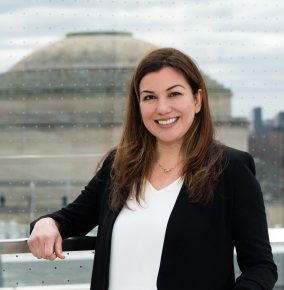Chakameh Jafari

What do you do at the Laboratory?
I develop advanced methods to track important physiological signals using optical light-based technology combined with AI and machine learning. I design innovative ways to gather crucial health data and use advanced data analysis to make sense of the information for medical and other critical applications.
Currently, I'm involved in a number of projects where I develop advanced hardware, circuits, and algorithms for applications such as brain activity monitoring and portable musculoskeletal imaging. Additionally, I lead a project focused on assessing burn injuries by integrating multiple sensing modalities and AI to enhance diagnostic accuracy and treatment strategies, especially in far-forward combat settings.
I also have a passion for hardware design and device miniaturization — rooted in my experience as a circuit design engineer before my PhD. The Laboratory provides a dynamic platform for me to leverage my background when tackling challenges and proposing innovative solutions.
What project or program have you found the most rewarding?
Since joining the Laboratory a year and a half ago, I have contributed to several high-impact projects. Notably, for the burn injury assessment initiative, my team and I developed a functional prototype in just four months and successfully gathered data with our clinical collaborators well ahead of schedule. This achievement was possible due to the Laboratory's cross-disciplinary expertise, strategic investments in multiple mission areas, and strong partnerships with military clinical teams. The rapid pace of prototyping and data collection we achieved would have been significantly more challenging in traditional industry or academic settings.
What do you plan to work on in the future?
I have become increasingly interested in exploring mitochondrial health as a key indicator for illness and injury recovery. Recent studies suggest that integrating treatment strategies based on mitochondrial status can significantly improve recovery outcomes. However, assessing mitochondrial function in vivo remains a formidable challenge. My goal is to leverage the Laboratory's internal expertise across various groups and build strong teams of both internal and external collaborators to develop innovative approaches and frameworks for clinical monitoring of biomarkers related to mitochondrial status. If successful, this work could have a profound impact on healthcare for critically injured service members and civilians.
What do you do in your free time?
I love spending time with my family, especially building creative engineering gadgets and 3D-printed structures with my 8-year-old daughter. I also enjoy playing the piano and attending local classical performances whenever possible. As a young musician, I dedicated countless hours to practice and frequently performed in recitals. During my undergraduate years at UC Berkeley, I joined a choir as a soprano, which deepened my appreciation for singing and expanded my musical journey.